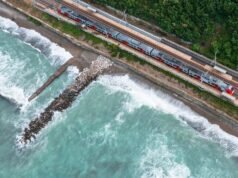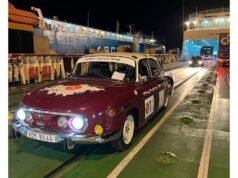The Trans Adriatic Pipeline (TAP) project will contribute to a switch from more polluting technologies in power generation in the South-East Europe, a European Commission spokesperson told Trend.
“In addition to the security of supply functionality, TAP in particular will contribute significantly to integration of gas markets in the South East Europe and therefore enable competition in the area where gas prices are still higher than in the rest of the EU. This is likely to increase the economics of gas vis-à-vis coal in particular and therefore contribute to a switch from more polluting technologies in power generation in the region,” added the spokesperson.
The European Commission representative pointed out that TAP has undergone very strict Environmental and Social Impact Assessment examination.
“This stems from the European and national legislation but is also a pre-condition for the involvement of the European Investment Bank, and other international development banks, in financing this project,” added the spokesperson.
The project company has invested a lot of time and resources in the dialogue with everyone potentially concerned by this pipeline, but also in research and preparatory studies, in order to be able to determine options to minimize possible impacts the project could have along the route, said the spokesperson.
“The Commission supports TAP in these efforts. As an example, part of the ongoing project development activities which contribute to the protection of cultural heritage along the route of this pipeline in Greece has been co-financed by the Commission through a grant under the Connecting Europe Facility program,” said the EU Commission representative.
TAP is a part of the Southern Gas Corridor, which is one of the priority energy projects for the European Union. The project envisages transportation of gas from Azerbaijan’s Shah Deniz Stage 2 to the EU countries.
The pipeline will connect to the Trans Anatolian Natural Gas Pipeline (TANAP) on the Turkish-Greek border, run through Greece, Albania and the Adriatic Sea, before coming ashore in Italy’s south.
TAP will be 878 kilometers in length (Greece 550 kilometers, Albania 215 kilometers, Adriatic Sea 105 kilometers, and Italy 8 kilometers).
TAP’s shareholding is comprised of BP (20 percent), SOCAR (20 percent), Snam S.p.A. (20 percent), Fluxys (19 percent), Enagás (16 percent) and Axpo (5 percent).






